This image shows the individual pins in a full-core nuclear reactor simulation. (Image: ANL)
Coolant flow around the fuel pins in a light water reactor core plays a critical role in determining the reactor’s performance. For yet-to-be-built small modular reactors, a thorough understanding of coolant flow will be key to successfully designing, building, and licensing first-of-a-kind reactors.
The MARVEL reactor concept with Stirling engines. (Image: DOE)
A future TerraPower plant visualization. (Graphic: TerraPower)
TerraPower has a design for a sodium-cooled fast reactor and federal cost-shared demonstration funding from the Department of Energy. Its partner, PacifiCorp, has four operating coal-fired power plants in the state of Wyoming. On June 2, together with Wyoming Gov. Mark Gordon and others, the companies announced plans to site a Natrium reactor demonstration project at a retiring coal plant in Wyoming, with a specific site to be announced by the end of 2021.
May 21, 2021, 2:41PMNuclear NewsCharles Forsberg and Eric Ingersoll TerraPower and GE Hitachi Nuclear Energy jointly developed the sodium-cooled Natrium reactor with the turbine hall, nitrate heat storage tanks, and cooling towers separated from the reactor at the back of the site.
The viability of nuclear power ultimately depends on economics. Safety is a requirement, but it does not determine whether a reactor will be deployed. The most economical reactor maximizes revenue while minimizing costs. The lowest-cost reactor is not necessarily the most economical reactor. Different markets impose different requirements on reactors. If the capital cost of Reactor A is 50 percent more than Reactor B but has characteristics that double the revenue, the most economical reactor is Reactor A.
The most important factor is an efficient supply chain, including on-site construction practices. This is the basis for the low capital cost of light water reactors from China and South Korea. The design of the reactor can significantly affect capital cost through its impact on the supply chain. The question is, how can advanced reactors boost revenue and reduce costs?
This figure, included in the ONWARDS funding opportunity announcement, shows how ARPA-E R&D programs address different stages of advanced reactor development. (Figure: ARPA-E)
The Department of Energy has announced up to $40 million in funding for a new Advanced Research Projects Agency-Energy (ARPA-E) program to conduct research and development into technologies for reprocessing and ultimately disposing of used nuclear fuel. The program, “Optimizing Nuclear Waste and Advanced Reactor Disposal Systems” (ONWARDS), announced on May 19, targets both open (once-through) and closed (reprocessing) fuel cycles to reduce the amount of waste produced from advanced reactors tenfold when compared to light water reactors.
The demonstration program aims to accelerate innovation and deployment of energy concepts at the intersection of industry needs, NRIC’s mission, and the R&D portfolio of CTD IES. (Graphic: BEA)
The National Reactor Innovation Center (NRIC) wants to hear from developers and end users interested in integrated energy systems for advanced reactors. Battelle Energy Alliance (BEA), the managing and operating contractor for Idaho National Laboratory, has issued a call for Expressions of Interest for a potential multi-phase demonstration program for innovative uses of nuclear energy, to be carried out by NRIC and the Crosscutting Technology Development Integrated Energy Systems (CTD IES) program. The final date for responses is May 21.
NCSU: Site of the 2021 ANS Student Conference
North Carolina State University was finally able to host the ANS Student Conference, April 8 to 10. After the 2020 event was canceled due to the global coronavirus pandemic, the 2021 version is being held virtually for the first time.
The conference's opening session is available for registered attendees to view online.
U.S. Rep. Dan Newhouse (R., Wash.) observes as (from left) Energy Northwest CEO Brad Sawatzke, X-energy CEO Clay Sell, and Grant PUD CEO Kevin Nordt sign the TRi Energy Partnership MOU on April 1 at the Port of Benton in Richland, Wash. Photo: Energy Northwest
Building the nation’s first advanced reactor is the goal of a partnership formed between X-energy, Energy Northwest, and the Grant County (Washington) Public Utility District (PUD).
The TRi Energy Partnership will support the development and demonstration of X-energy’s Xe-100 high-temperature gas reactor, which was selected by the Department of Energy for a cost-shared commercial demonstration by 2027 through the DOE’s Advanced Reactor Demonstration Program (ARDP). The new partnership was announced on April 1, when Clay Sell, X-energy’s chief executive officer; Brad Sawatzke, Energy Northwest’s CEO; and Kevin Nordt, the Grant County PUD’s CEO, met in Richland, Wash., to sign a memorandum of understanding.



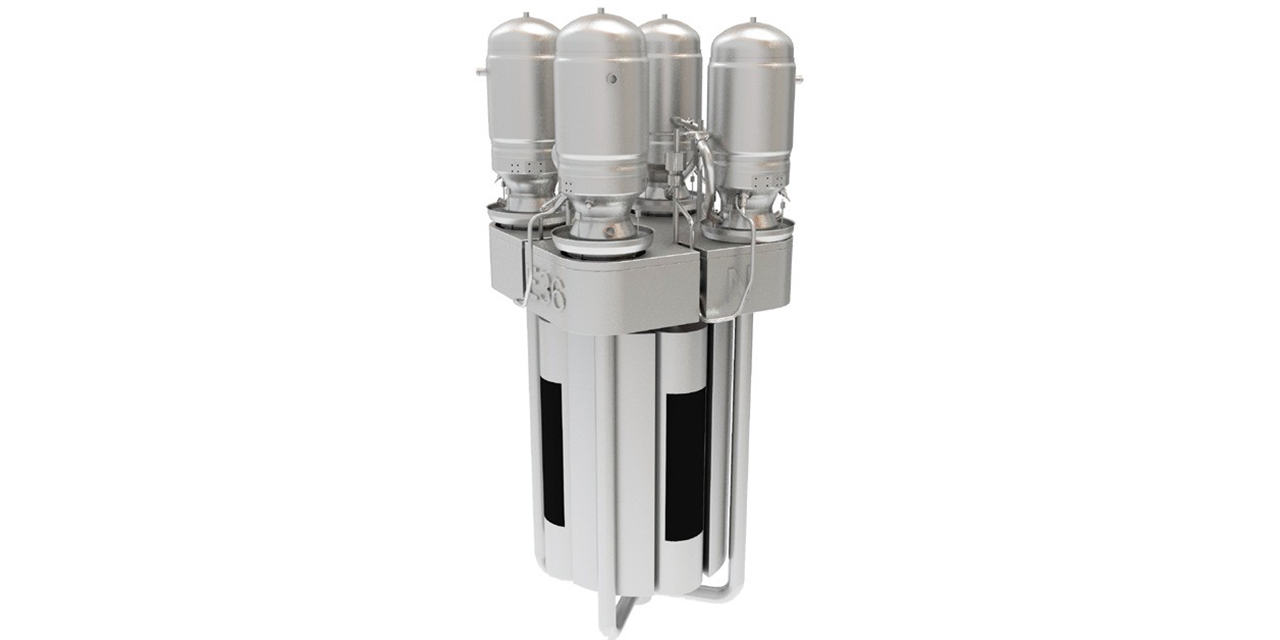
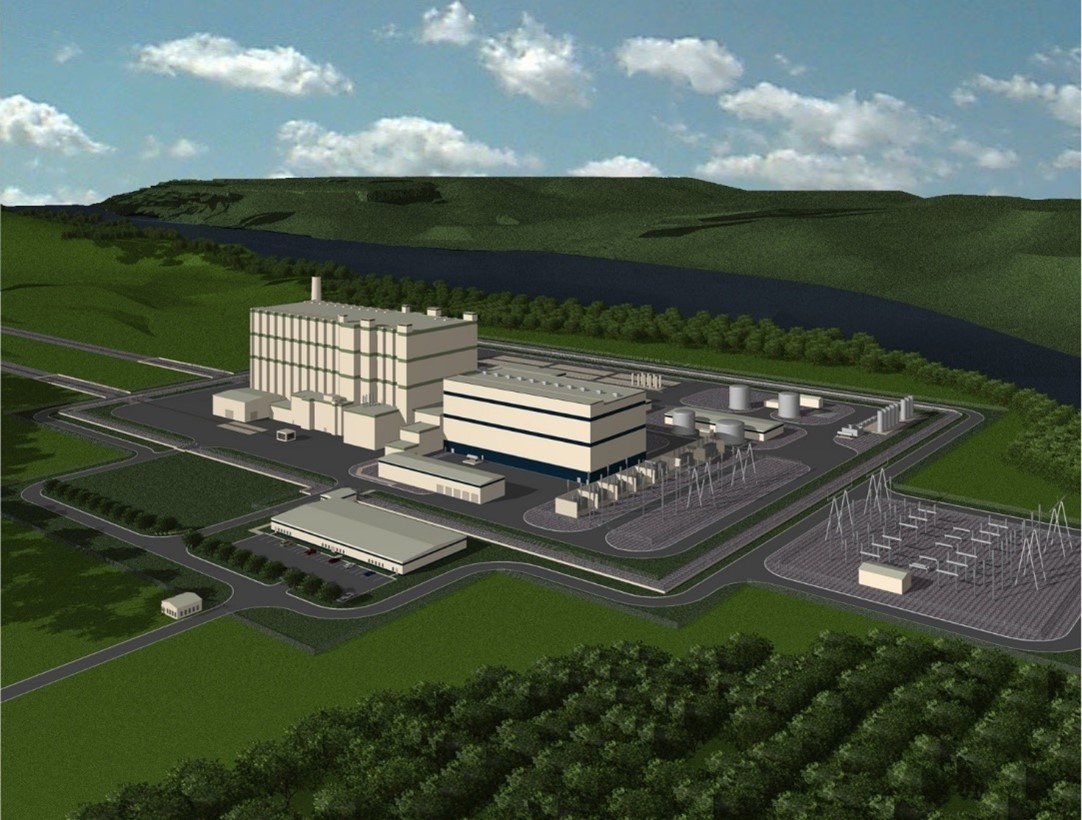
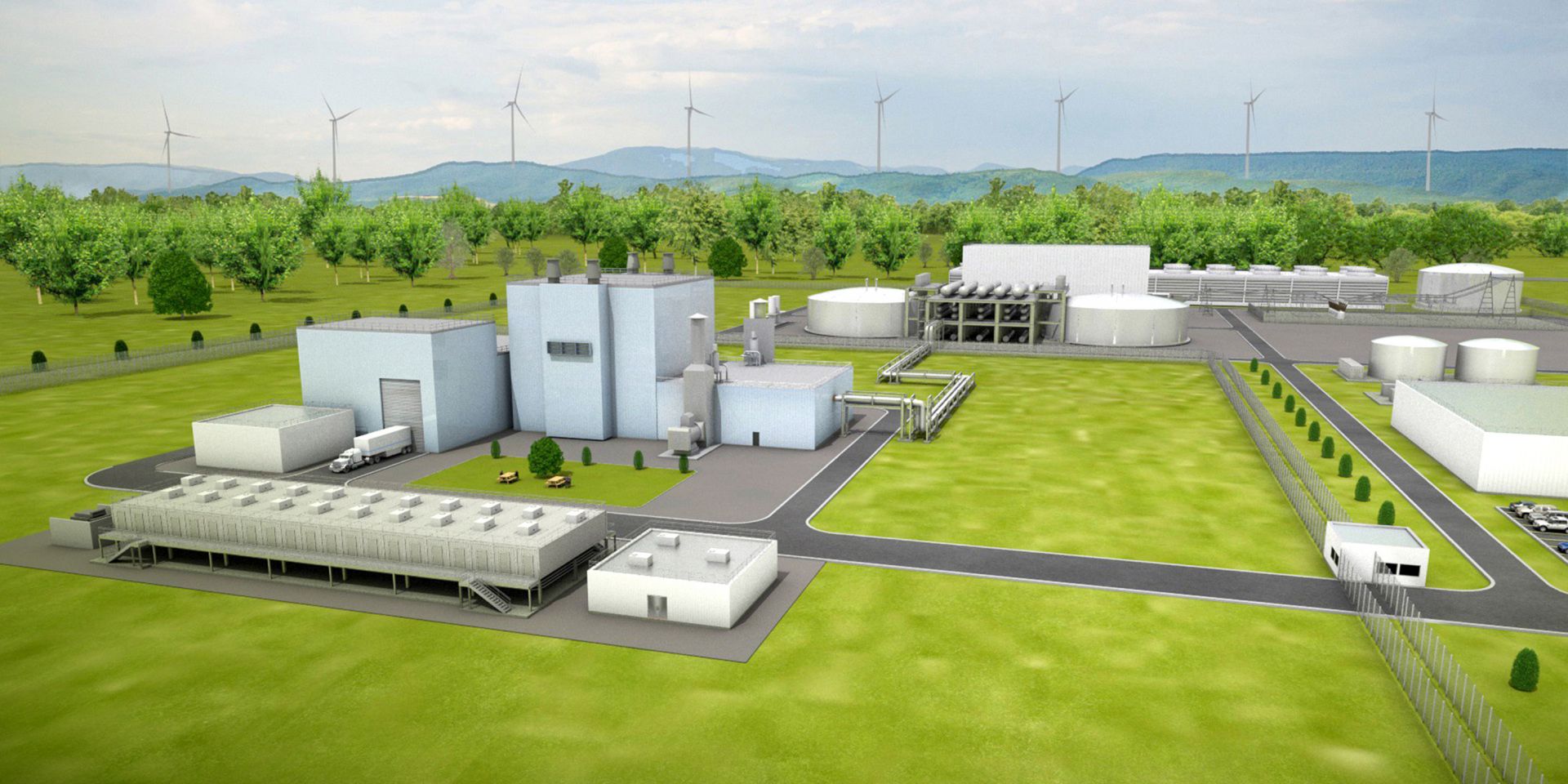
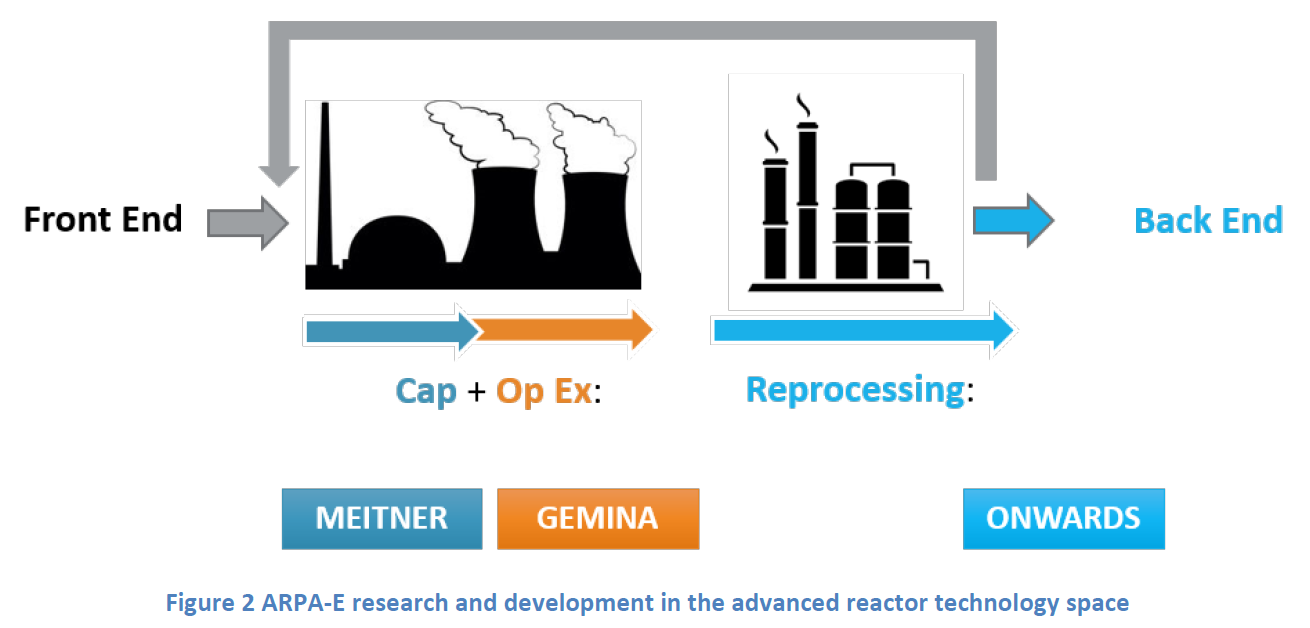
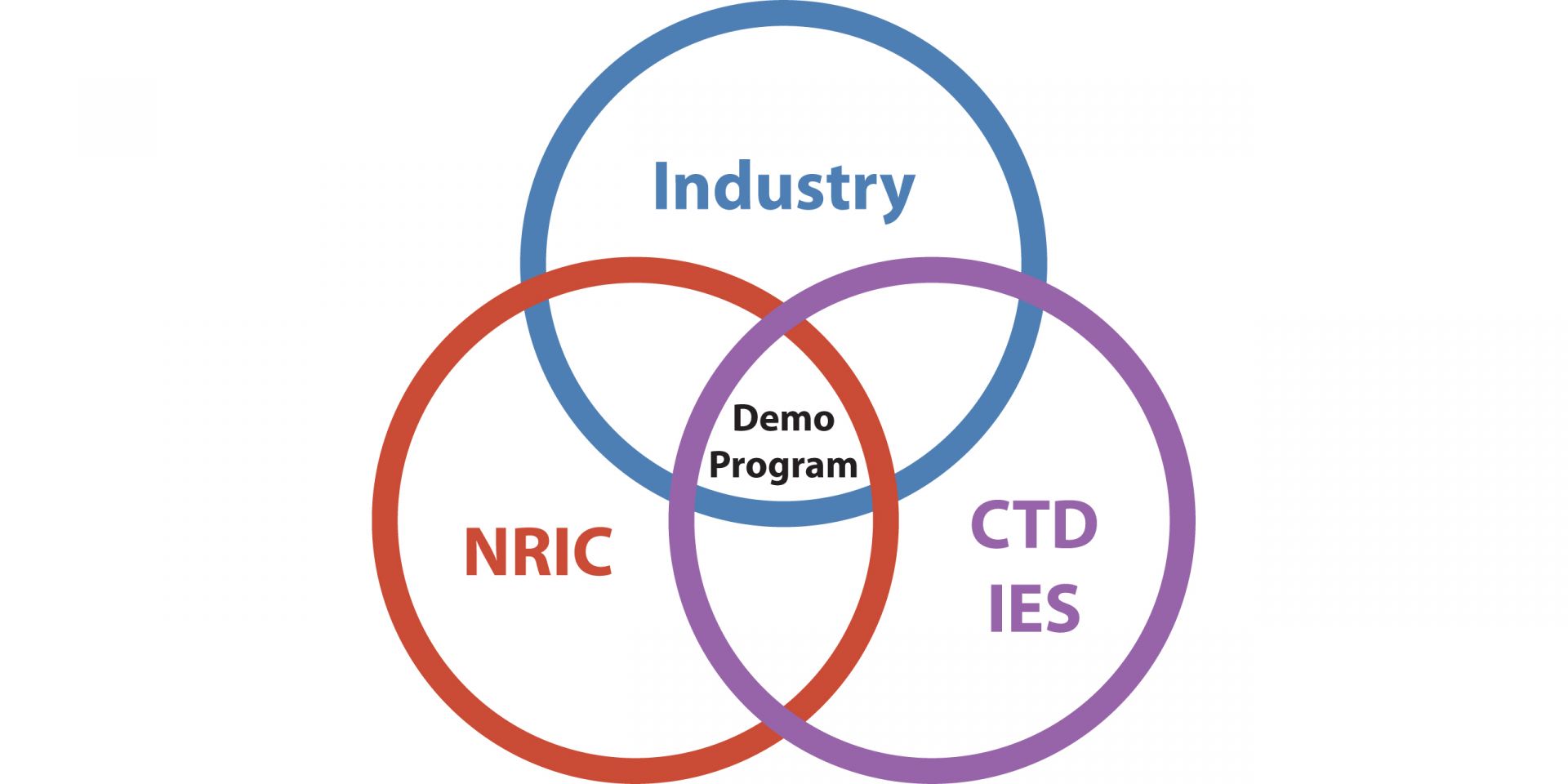

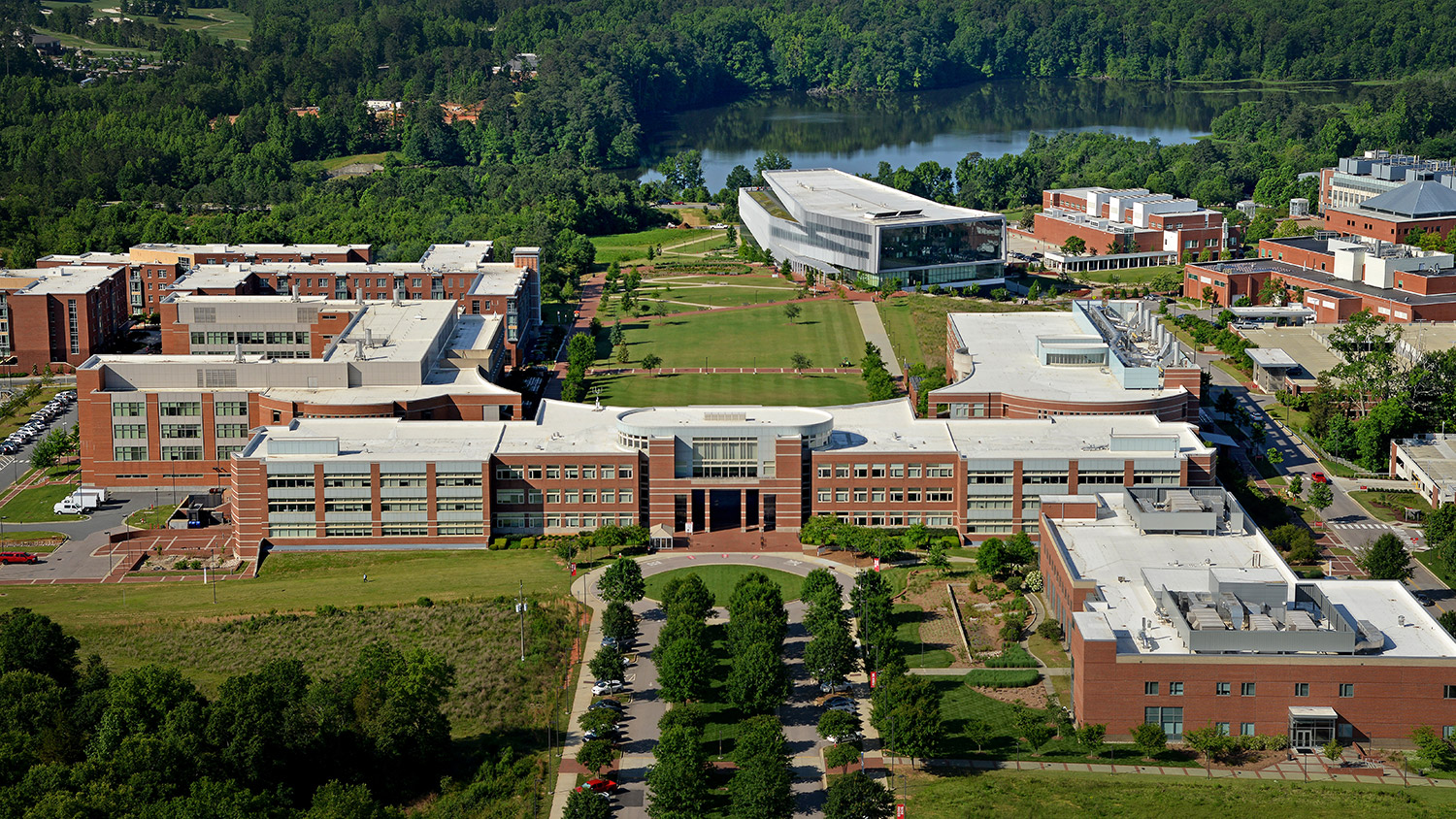
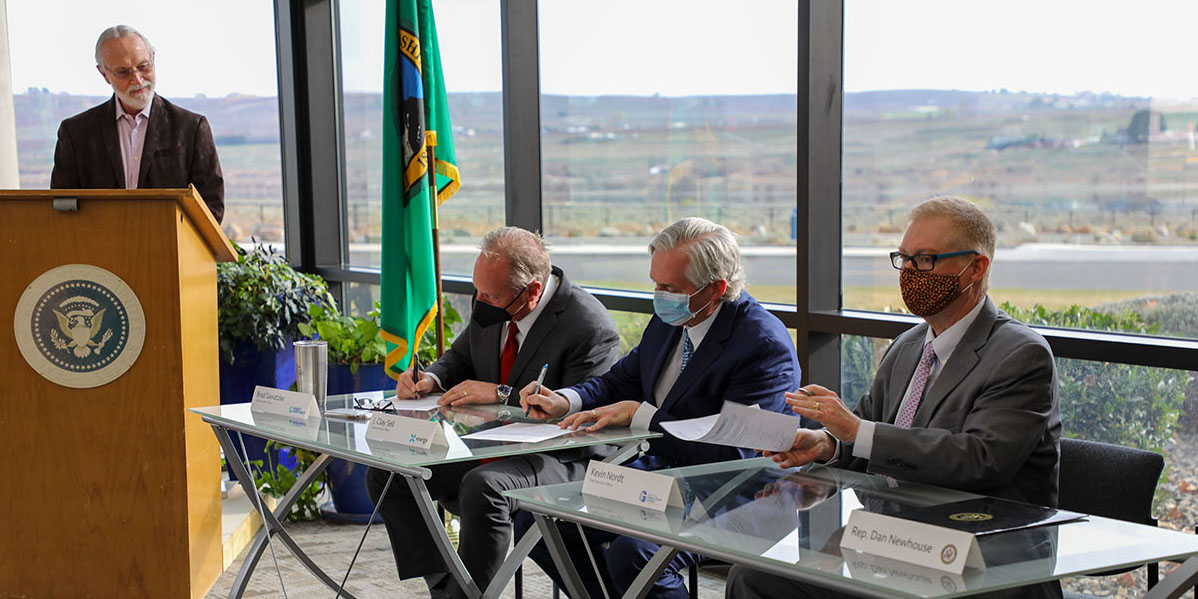
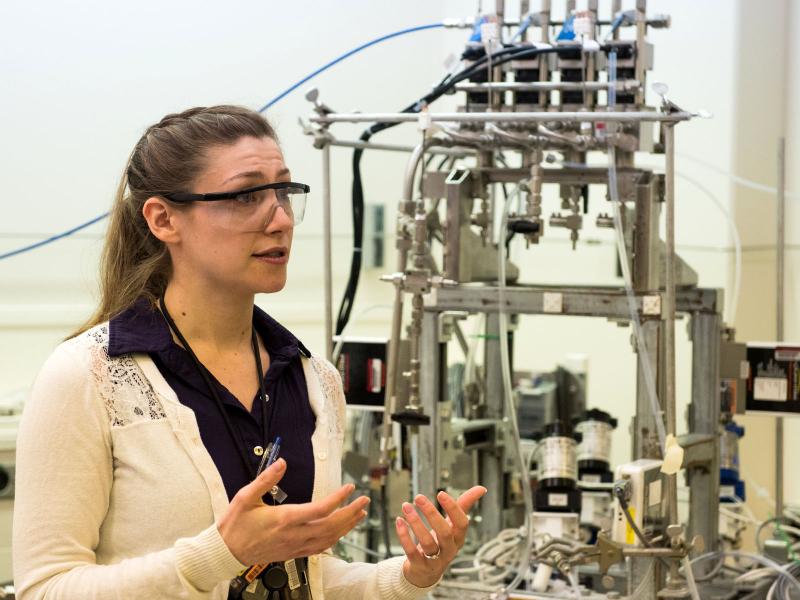

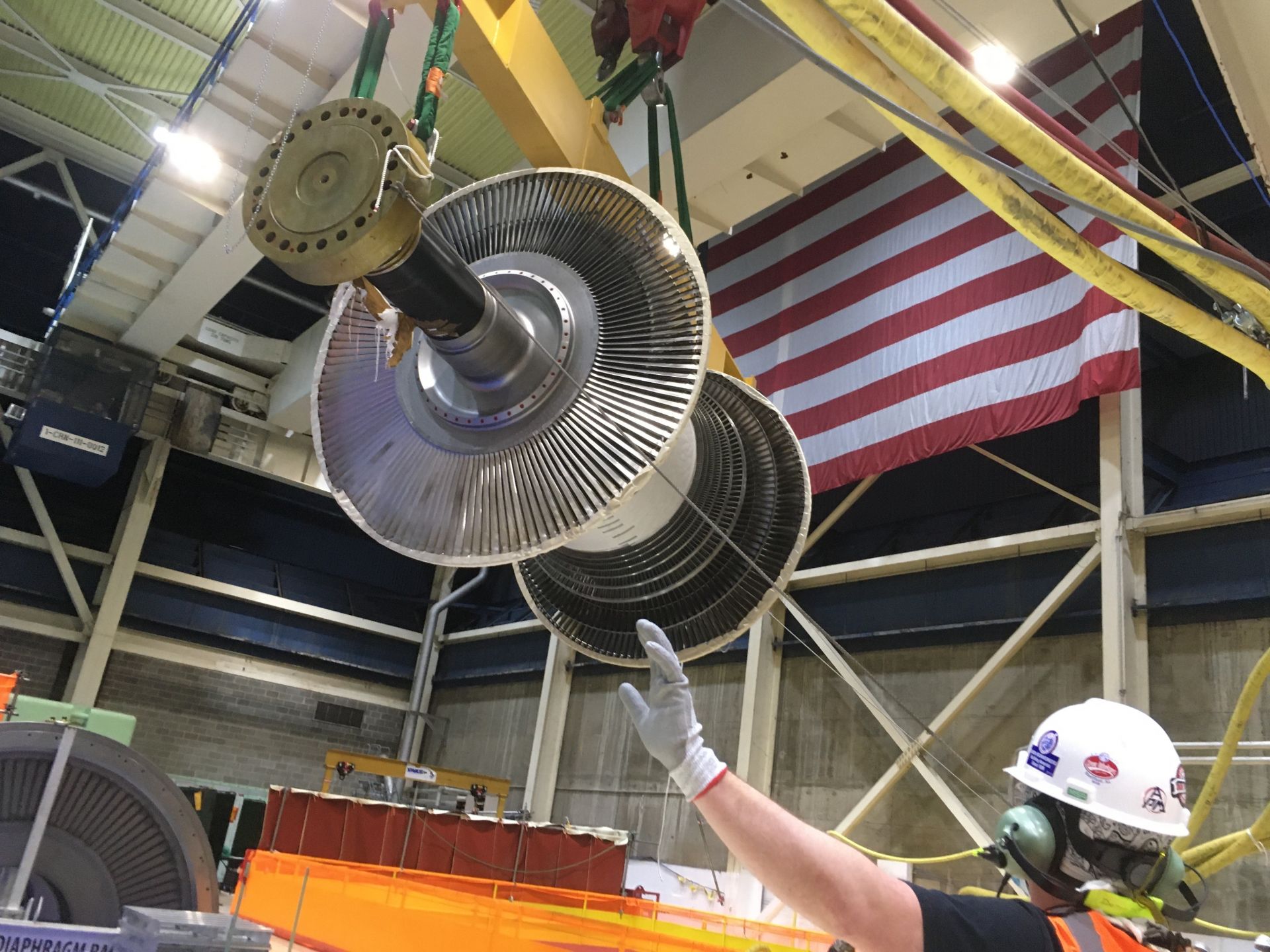
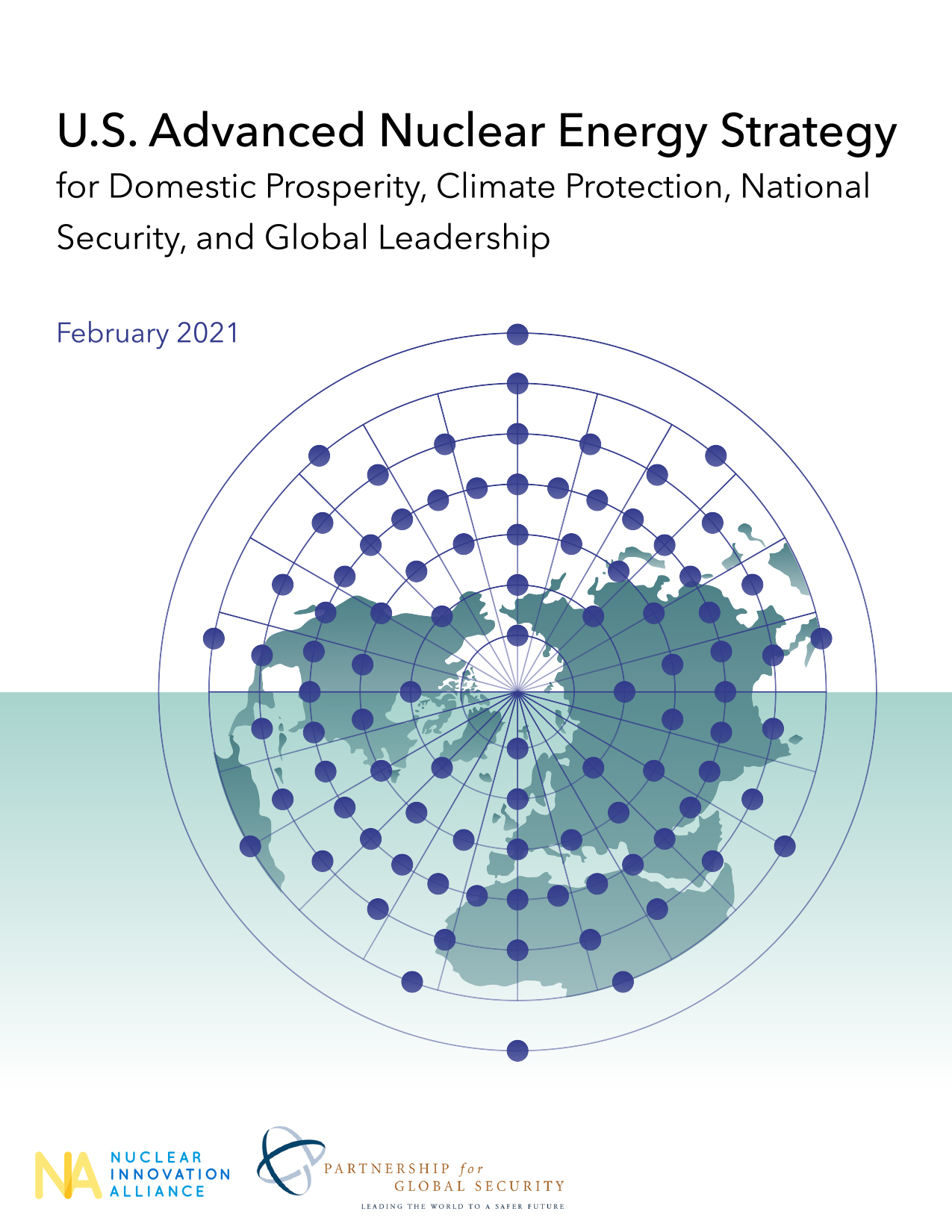 The
The 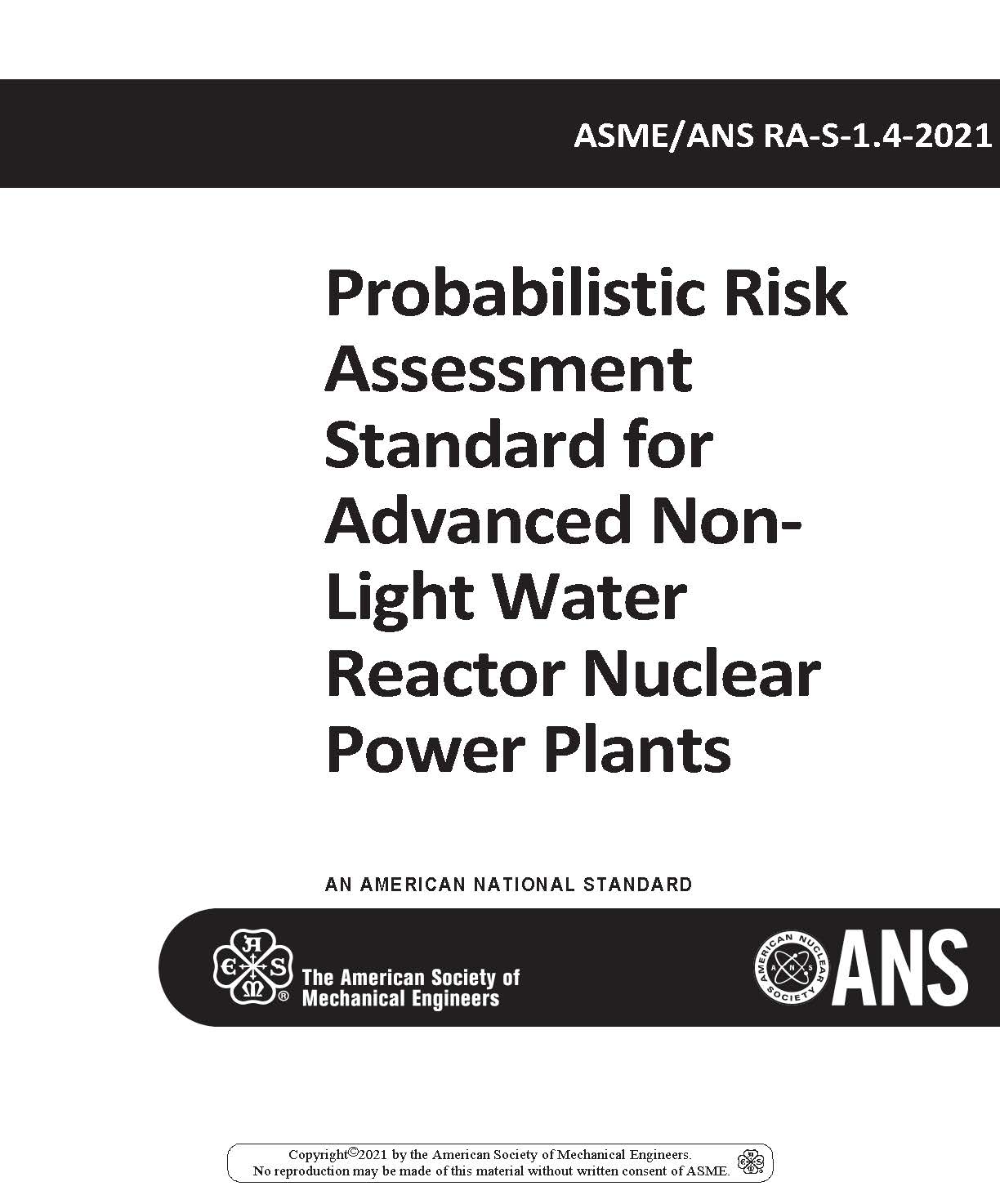 ANSI/ASME/ANS RA-S-1.4-2021, “Probabilistic Risk Assessment Standard for Advanced Non-Light Water Reactor Nuclear Power Plants,” has just been issued. Approved by the American National Standards Institute (ANSI) on January 28, 2021, this joint American Society of Mechanical Engineers (ASME)/American Nuclear Society (ANS) standard sets forth requirements for probabilistic risk assessments (PRAs) used to support risk-informed decisions for commercial nuclear power plants and prescribes a method for applying these requirements for specific applications.
ANSI/ASME/ANS RA-S-1.4-2021, “Probabilistic Risk Assessment Standard for Advanced Non-Light Water Reactor Nuclear Power Plants,” has just been issued. Approved by the American National Standards Institute (ANSI) on January 28, 2021, this joint American Society of Mechanical Engineers (ASME)/American Nuclear Society (ANS) standard sets forth requirements for probabilistic risk assessments (PRAs) used to support risk-informed decisions for commercial nuclear power plants and prescribes a method for applying these requirements for specific applications.